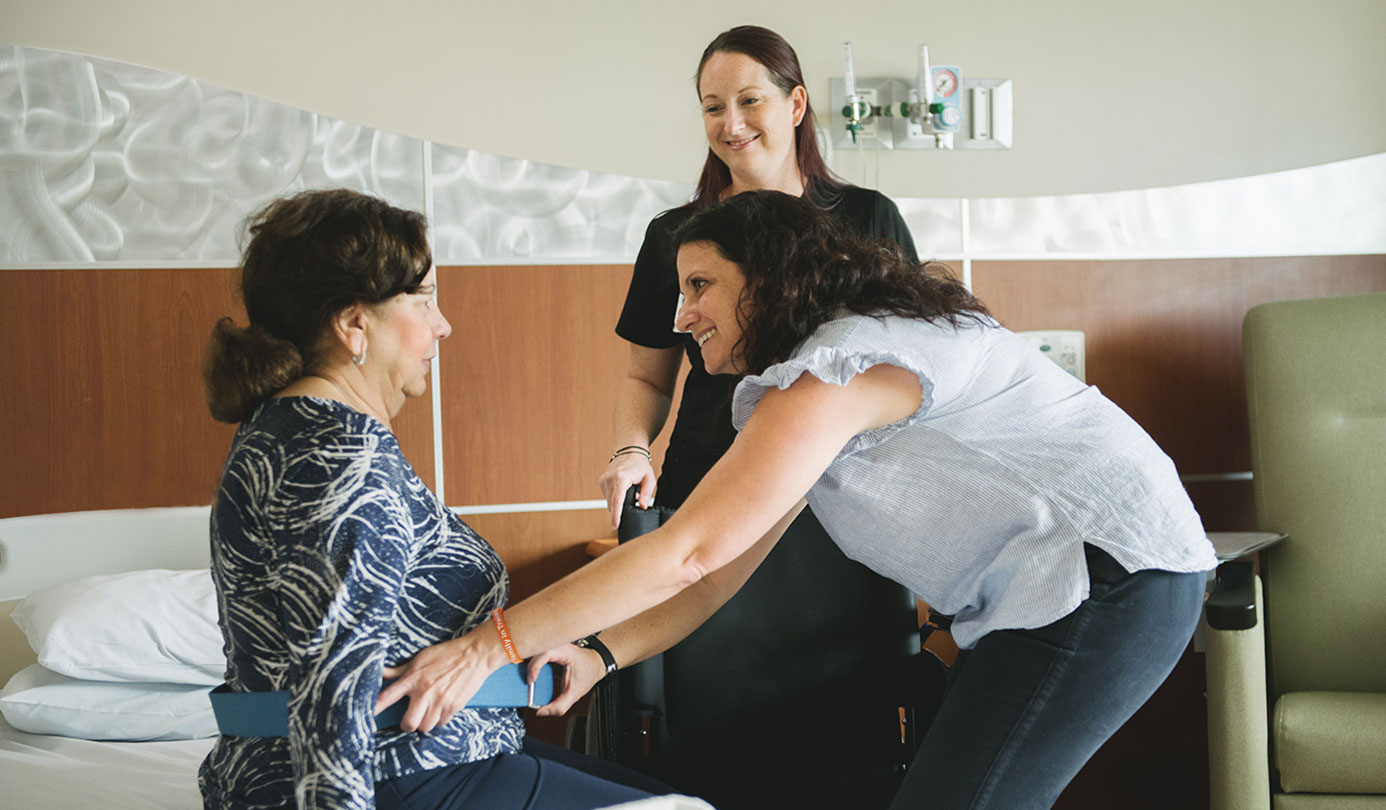Electrocardiogram
An electrocardiogram (EKG or ECG) is a test that measures the electrical activity of the heart to check for signs of heart disease.
What is an EKG?
An electrocardiogram (also known as ECG or EKG) is a painless, noninvasive way to measures the electrical activity of the heart. By positioning leads (electrical sensing devices) on the body in standardized locations.
Why would I need an EKG?
An EKG may be ordered for:
- A routine screening
- Part of an annual check-up
- To assess risk for heart disease
How to prepare for an EKG
- Do not wear oily or greasy skin creams and lotions because they can prevent the electrode from making skin contact.
- Do not wear full-length stockings because electrodes need to be placed directly on the legs.
- Wear a shirt that can be easily removed.
What happens during an EKG?
While lying flat, a technician attaches 10 electrodes with adhesive pads to your chest, arms and legs to record your heart’s electrical activity. If you have hair on those body parts, the technician may shave those areas so the pads stick. These electrodes are attached to electrical leads (wires), which are then attached to the EKG machine. It takes about 10 minutes to attach the electrodes and complete the test, but the actual recording takes a few seconds.
Your EKG tests will remain on file so your doctor can compare them to future tests.
It matters to you. It matters to us.
Quality and Safety Data for Memorial Healthcare System
Our goal is to provide our patients with the information they need to make informed choices for themselves and their families.
View Quality and SafetyYou have a Right to Know About Prices
We want to give you the information you need to make important healthcare decisions, including the costs of our services.
View PricingMyChart Portal
View test results, schedule follow-up appointments, request prescription refills and more.
Login or Sign-up to MyChart
Patient and Family Centered Care
We treat patients and family members as partners in healthcare.

